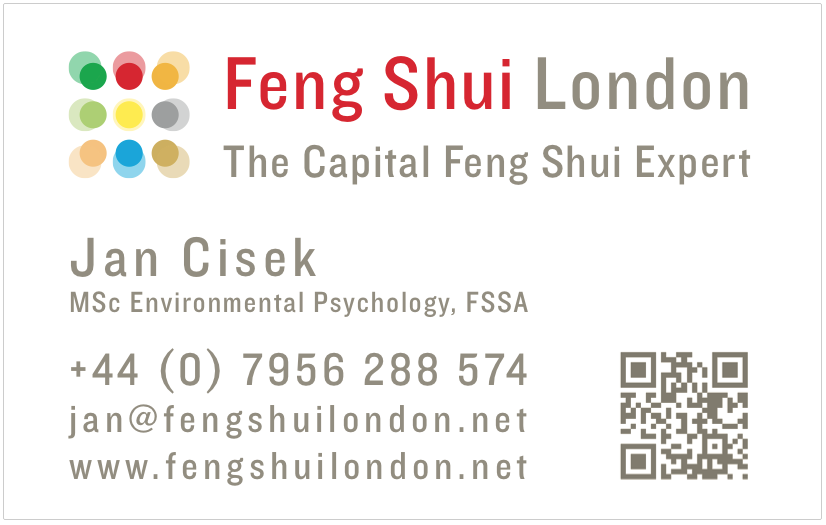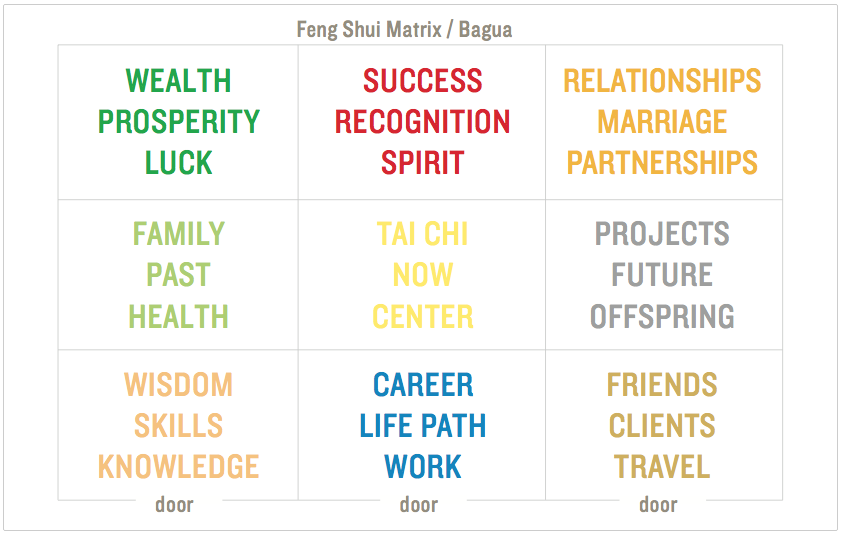Top feng shui tips for auspicious business cards design
1. Use credit card size/ golden mean proportion. Credit cards are designed with golden mean section which is perfect for attracting money. Hence credit cards make a lot of money. Coincidence? No. If you want to spend extra money on your card you can have the corners of the card rounded which can be expensive. This will add a metal (money) element to your card design – read tip number 9 below about the use of shapes and colours.
2. Make it legible and user-friendly. Make sure that the card is easy to read i.e. the font is not too small to decipher. Don’t you hate business cards that are difficult to read?
3. Keep the design simple. There is no need to add irrelevant words such as Tel, Email, etc. +44 7956288574 is enough if there is only one telephone/mobile number present.
4. Make sure that your name stands out and has a proper description of your function. State who you are and what you do clearly. That will clarify who you are and your expertise.
5. Design a powerful tag line. This will clarify further what you do, your expertise and your brand promise. My tagline is: The Capital Feng Shui Expert. This simple tagline establishes me as the feng shui expert in London where I work and live. Obviously I have plenty of credentials and credibility after working as a feng shui expert for nearly 30 years.
6. Add QR code. This will help people to add your contact details easily to their mobile phones. Also if you leave your card on notice boards people can scan the QR code without taking your card.
7. Add useful information that will require the prospect to keep your card. For example, I’ve added bagua matrix on the back on my business card so people keep it for reference.
8. Leave some white space. Ideally, the bottom right corner of the card should have some white space so when you’re handing your card you are not covering any information. On my card (see above) I placed the QR code which is not critical for the first impression, if it’s covered.
9. Incorporate feng shui colours and shapes relevant to your business category (according to five elements).
Black, blue, purple – water element, wave-like shapes – musician, shipping, counseling, driving, marketing, therapist, coach, restaurant, healing
Green, brown – wood/tree element, upward rectangle shapes – hotels, health, florists, nurseries, footwear, athletes, dancers
Red, burgundy, deep purple – fire element, triangular shapes – feng shui, PR, journalism, photography, eye specialties, heart doctors, restaurants, entertainment, bars and clubs
Yellow, beige, orange – earth element, square shapes – mining, real estate, psychics, nursing, education, charities.
White, gray, gold – metal element, circular, oval or arching shapes – jewellery, sales, computers, technology, surgery, medical, dental, insurance, and airlines
Multicolored or rainbow – excellent for getting recognition and being noticed
If you need feng shui advice on your business card design or logo design or branding feel free to contact me on +44 7956 288574 or email me.
Why do Japan’s pensioners want to keep working so long? Short answer: to keep their business card.
Partly to retain a possession central to Japanese corporate life: the business card. No meeting begins without an elaborate card-swapping ceremony, with business travellers amassing vast collections – but there is more to the ritual than meets the eye. as Kuniko Inoguchi, a Liberal Democrat Party politician. explains. “Not working Is not a dignified lifestyle,” she said. “You need to be with your business card. It’s Jdentlflcallon.” Presenting the card echoes the formalities practised by “the highest class in Japan – the warrior”, when they were about to “engage in a due”’, Warriors began by declaring who they were. “We have rules of engagement,” Ms Inoguchl said. “First you have to announce yourself. So the first thing you do is exchange cards. There is no getting to know each other first as you do in western Europe before you exchange cards. You announce yourself: I am here to do my mission. “So having a business card means you are the type of person who can announce themselves. People don’t just want to say they are a pensioner.” Source: The Times business section 21 Sept 2015
Tips on how to hand your business card to a Japanese person
As you’ve discovered business cards are very important in Japan (read above). Handling business cards in Japan or with a Japanese is highly regulated by business cards handling etiquette.
1) hand over your card holding it by a corner of the card so the logo or name is not covered and the writing should face the person
2) when receiving a business card, hold it in both hands and then place it in your business cards wallet – never in your pocket, or table, etc because this is considered disrespectful.
Watch this instructional video about how to handle business cards in Japan or with a Japanese (including how to position your feet)…
If you need feng shui advice on your business card design or logo design or branding feel free to contact me on +44 7956 288574 or email me.


